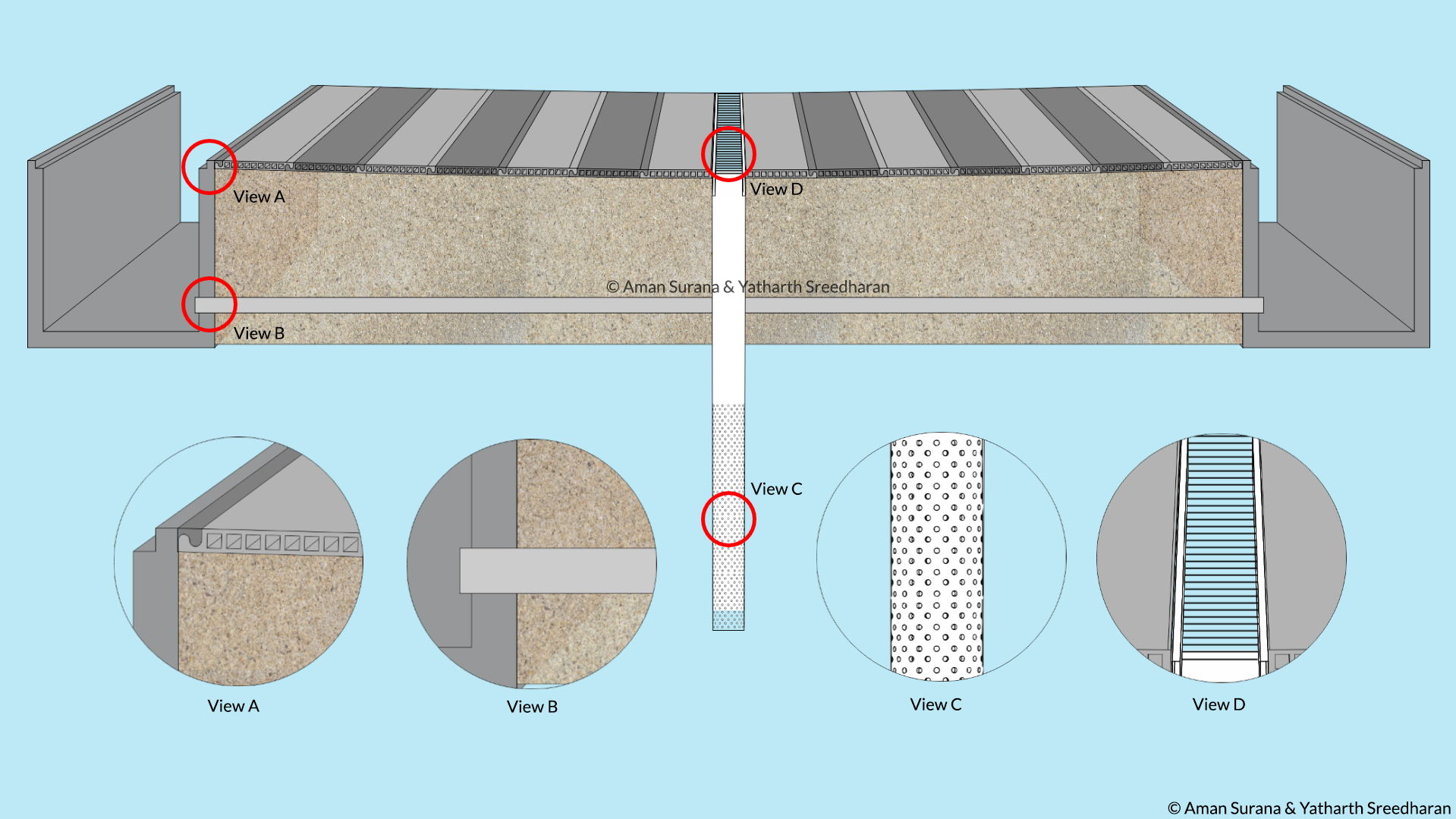
Two Students Design Cost-Effective Roads Which Collect Rainwater & Recharge Groundwater
6 Jan 2017 7:15 AM GMT
India consumes an overwhelming 7 million tonnes of plastic annually. This staggering amount of plastic can loop the Earth 15 times if converted into 24 feet wide road, using an approach suggested by two high school students from Jaipur.
The knowledge of Reinforced Thermoplastic Lumber has been around for a long time. People have also known about its viability as road construction material and have used it to construct bridges that can support multiple M1 Abrams Tanks, each of them weighing a whopping 61 tonnes. But recent advances in plastic processing and the burgeoning problem of plastic accumulation caused Aman Surana and Yatharth Sreedharan to propose RTCL as an alternative to tar for constructing roads at the International Youth Conference on Science and Environment at The Doon School, Dehradun.
Poor road conditions like potholes and ditches are a common sight across India and often are the reason for a large number of accidents every year. The approach suggested by Aman and Yatharth minimises such conditions at the same time allowing for quick and easy maintenance. The collected plastic is shredded and processed with fibres to improve its strength.
Finally, what is achieved are interlocking tiles that are 2 feet wide. They are designed in such a fashion to permit small movements that occur due to seismic activities and underground vibrations without the loss of any structural integrity increasing the lifespan of roads by reducing cracks that occur regularly on cemented or tar roads. Moreover, the arrangement would be such that the roads are slightly inclined towards the centre collecting rainwater and recharging ground water level at regular intervals through slotted PVC pipes that run deep into the soil.

The positioning would also feature service trenches on both sides of the road which would carry underground pipelines, telephone lines, etc. Repairs can be performed just by removing the trench cover, without digging the roads over and over again saving a lot of money in the process. These trenches can also be used as another source of income for the road construction departments as they could charge a monthly rental for the use of the trenches. This would, ideally, also alleviate issues like frequent digging up of roads and cutting of telecom cables.

Apart from the benefits highlighted above, there are the obvious cost benefits. Constructing an RTCL road is a lot cheaper to build than a cement or tar road of the same dimensions. Moreover, it is easier to work with these tiles since they weigh only about 2kg which makes it easier for labourers to carry around.
The RTCL road, though in a conceptual stage right now, paves the way for future efforts to improve the civil engineering of road transportation systems. Having said that, this idea has come a long way from a figment of imagination to a white paper. Aman and Yatharth are now trying to get this design patented, provided they get the right kind of support. But the key takeaway here is that one does not need to hold a PhD (which would certainly be helpful) to innovate and change the world for better.
The Initiative
Teenspire is an initiative undertaken by WorkTeen, and The Logical Indian. Teenspire showcases the best Indian Highschoolers have to offer to society: their creativity, their passion, and above all, their ability to change the world for the better.
The Teenspire series helps these high schoolers get a larger platform to operate on by increasing their awareness on social platforms, thereby helping them achieve their goals.
You can also read this story here.
About WorkTeen:
WorkTeen helps high school students across various Indian cities find internships, volunteering and research opportunities with non-governmental organisations, various firms and research institutes. Discover opportunities for your interests here.
 All section
All section













